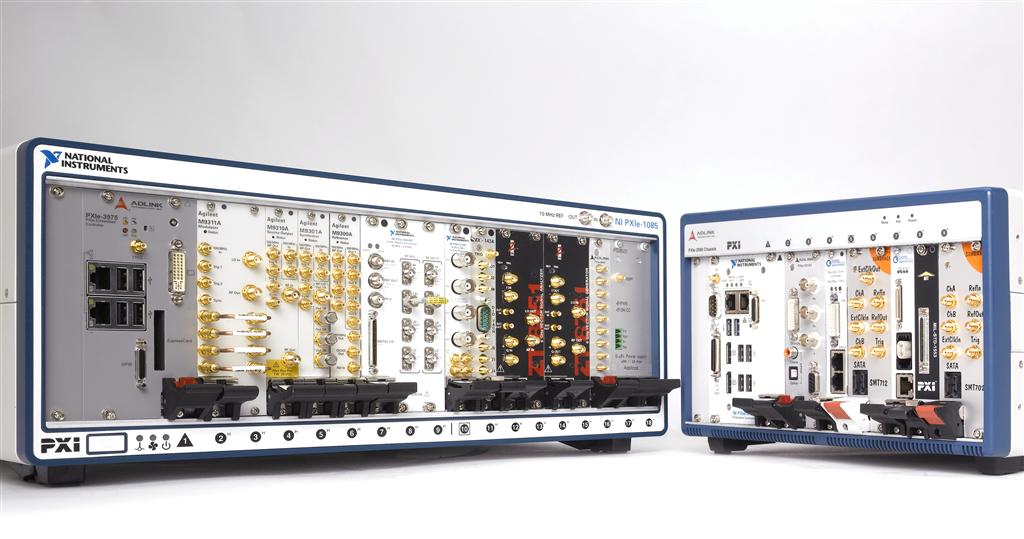Description
The National Instruments GPIB-120B GPIB Expander/Isolator is a versatile device designed to extend the capabilities of GPIB systems. It is fully compatible with the IEEE 488.1 and IEEE 488.2 standards, ensuring a wide range of compatibility with GPIB-equipped instruments. This expander/isolator can support a significant expansion, allowing for up to 28 devices to be connected to the GPIB bus.
One of the key features of the GPIB-120B is its high isolation voltage, providing up to 2,500 VDC (non-continuous) between GPIB ports and the power supply, which is essential for protecting sensitive equipment from voltage spikes and surges. Furthermore, the device facilitates bidirectional expansion, which means it can handle talkers, listeners, and controllers on either side of the expansion, offering great flexibility in system configuration.
When it comes to noise interference, the GPIB-120B is adept at eliminating induced common-mode and ground loop noise, ensuring that signal integrity is maintained throughout the system. Each unit of the GPIB-120B can accommodate 14 additional devices, effectively doubling the number of instruments that can be added to the bus.
The operation of the GPIB-120B is transparent to GPIB control and communication programs, which means that existing software can be used without any modifications, even after expanding the system. It supports both buffered and unbuffered data transfer modes, with the latter being the default setting. In terms of connectivity, the GPIB-120B features eight data lines (DIO1 to DIO8) and three hardware handshake lines, providing robust data transfer capabilities.
| Specification | Detail |
|---|---|
| Product Name | National Instruments GPIB-120B GPIB Expander/Isolator |
| Part Numbers | 779651-01, 779651-04, 779651-06, 779651-07 |
| Compatibility | IEEE 488.1 and IEEE 488.2 standards |
| Maximum Devices Supported | 28 devices on the GPIB bus |
| Isolation Voltage | Up to 2,500 VDC (non-continuous) between GPIB ports and power supply |
| Bidirectional Expansion | Supports talkers, listeners, and controllers on either side of the expansion |
| Noise Elimination | Eliminates induced common-mode and ground loop noise |
| Additional Devices Supported | 14 additional devices per GPIB-120B |
| Operation | Transparent to GPIB control and communication programs |
| Data Transfer Modes | Buffered mode and unbuffered mode (default) |
| Data Lines | DIO1, DIO2, DIO3, DIO4, DIO5, DIO6, DIO7, DIO8 |
| Hardware Handshake Lines | Three lines |
Q1: How does the National Instruments GPIB-120B enhance the functionality of GPIB systems and what are its key features in terms of compatibility, device expansion, isolation voltage, and data transfer modes?
A1: Using the National Instruments GPIB-120B Expander/Isolator, up to 28 devices can be connected to a GPIB system, and it protects sensitive equipment from voltage spikes with a high isolation voltage of up to 2,500 VDC between GPIB ports and the power supply.
Q2: What are the key benefits and features of the National Instruments GPIB-120B GPIB Expander/Isolator with respect to IEEE standards compatibility, voltage isolation, and the number of devices it can support?
A2: The National Instruments GPIB-120B enhances the functionality of GPIB systems by offering compatibility with IEEE 488.1 and IEEE 488.2 standards, allowing for the connection of up to 28 devices to the GPIB bus, and supporting bidirectional expansion. Its key features include a high isolation voltage of up to 2,500 VDC to protect against voltage spikes, the capacity to add 14 additional devices per unit, and the ability to operate transparently with existing GPIB control
Q3: What is the maximum isolation voltage provided by the National Instruments GPIB-120B GPIB Expander/Isolator to protect connected devices from voltage spikes and surges?
A3: The National Instruments GPIB-120B GPIB Expander/Isolator offers key benefits and features that include full compatibility with IEEE 488.1 and IEEE 488.2 standards for broad GPIB instrument integration, a high isolation voltage of up to 2,500 VDC to protect against voltage spikes and surges, and the capacity to support an expanded GPIB system of up to 28 devices, enhancing system scalability.
Q4: What are the key features and capabilities of the National Instruments GPIB-120B GPIB Expander/Isolator in terms of standards compatibility, device connectivity, voltage isolation, data transfer modes, and flexibility in system configuration?
A4: The National Instruments GPIB-120B GPIB Expander/Isolator is fully compatible with IEEE 488.1 and IEEE 488.2 standards, supports the connection of up to 28 devices on the GPIB bus, offers high isolation voltage up to 2,500 VDC to protect equipment, enables bidirectional expansion for talkers, listeners, and controllers, ensures signal integrity by eliminating common-mode and ground loop noise, allows for the connection of 14 additional devices per unit
Q5: What is the maximum number of devices that can be connected to a GPIB system using the National Instruments GPIB-120B Expander/Isolator, and how does it protect sensitive equipment from voltage spikes?
A5: The National Instruments GPIB-120B GPIB Expander/Isolator provides a maximum isolation voltage of 2,500 VDC (non-continuous) to protect connected devices from voltage spikes and surges.


